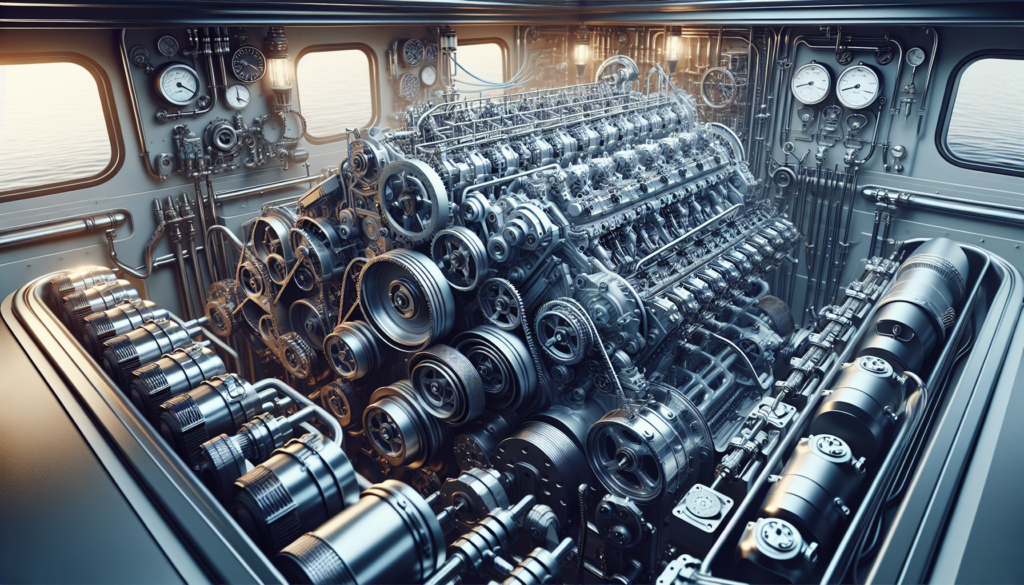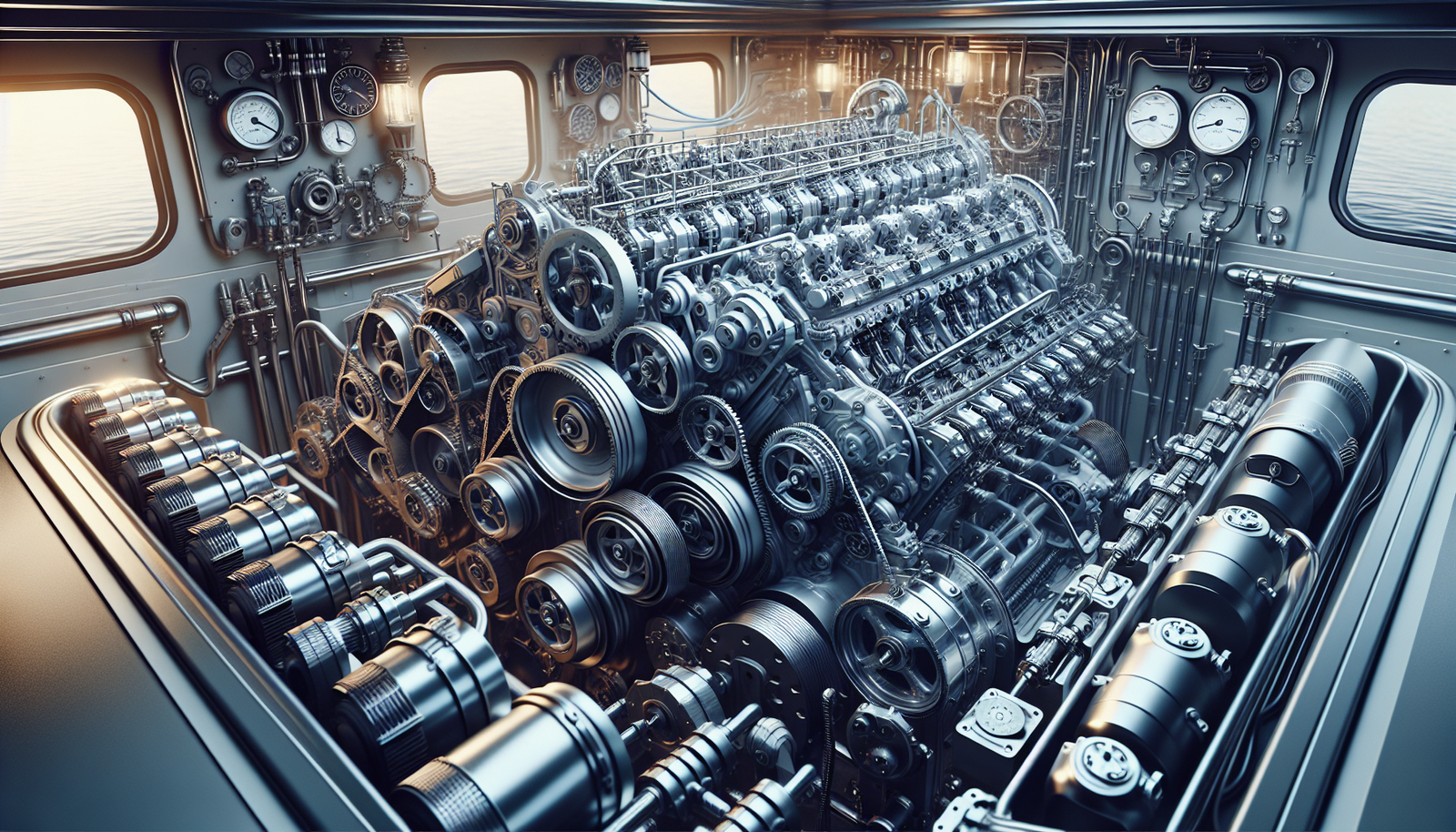If you are a boat owner, you would certainly appreciate the importance of maintaining your boat’s engine’s fuel system to ensure its smooth functioning. This intriguing article guides you on how to prevent fuel system issues in boat engines. From understanding the critical aspects of your boat’s engine to practical tips for maintenance, the article provides you with detailed insights that can enhance your knowledge and maintain your boat engine’s fuel system in top condition. Secure the longevity of your vehicle and enjoy the waters fearlessly; keep those avoidable issues at bay, deny any chance of disruption to your peaceful sea voyage.

Understanding the Basics of Your Boat’s Fuel System
The fuel system in your boat is a critically important component of its operation. It’s much more than just a means of providing power; it’s a complex system that can have a significant impact on the overall performance and safety of your boat. Let’s delve deeper into this key aspect of your boat’s engine and learn about its intricacies.
The role of the fuel system in boat operation
The boat’s fuel system plays a decisive role in the functioning of your boat. In a nutshell, it ensures that the engine gets fuel in the right quantity and at the correct time for optimal performance. It’s a precise factor in managing your boat’s speed, power, and efficiency.
Major components of a boat’s fuel system
Your boat’s fuel system comprises several vital components, including the fuel tank, fuel lines, fuel pump, carburetor, fuel filter, and fuel injectors. Each plays a unique role in safe and effective fuel transport and function.
How the fuel system works in a boat engine
At the most basic level, the fuel system works by conveying fuel from the tank through the fuel lines to your boat’s engine using fuel pumps. The carburetor or fuel injector then vaporizes the liquid fuel into a gas, mixing it with air for combustion in the engine.
Recognizing Common Fuel System Problems in Boat Engines
Like any mechanical system, your boat’s fuel system might encounter issues over time. Identifying common problems early can save you from potential breakdowns and expensive repairs.
Signs of a failing fuel system
Indicators of a failing fuel system can be subtle, so keep an eye out for symptoms such as a loss of power while under load, erratic running of the engine, poor fuel economy, or harsh or rough idling.
Potential impacts of fuel system problems
Fuel system problems can be detrimental if not addressed promptly. They can lead to inefficient fuel consumption, poor boat performance, and even severe engine damage.
Most common fuel issues seen in boats and how they occur
One of the most common issues is contaminated fuel, which can occur due to water intrusion, sediment, or microbial growth in the fuel tank. Other frequent problems include clogged fuel lines or carburetors, deteriorated fuel hoses, and faulty fuel pumps.
Proper Fuel Selection and Storage
Choosing the right fuel for your boat and storing it properly is just as important as regular maintenance when it comes to keeping your fuel system in good shape.
The importance of using the right fuel
Using the wrong fuel can lead to a host of problems. Always use the type of fuel recommended by the boat’s manufacturer. Less than ideal alternatives might end up causing internal damage to the engine.
How to properly store fuel for your boat
Store your fuel in a cool and dry location, away from direct sunlight. Over time, temperature changes can cause liquid expansion and contraction within the fuel, which can lead to condensation and water contamination.
Effects of bad fuel on your boat’s engine
Poorly stored or contaminated fuel can lead to various issues ranging from clogged fuel lines and filters to engine misfires, engine corrosion, and reduced engine lifespan.
Regular Inspection and Maintenance Checks
Regular maintenance checks are fundamental to ensuring the longevity and efficiency of your boat’s fuel system.
Frequency of inspection and maintenance checks
Routine inspection and maintenance checks should ideally take place at least annually, and more frequently if you use your boat regularly.
Key points to check during routine inspection
Keep an eye for any cracks, damage, or leaks in fuel lines and hoses, signs of rust and sediment in the fuel tank, and any signs of clogging in the fuel filter or injectors.
How often should fuel system components be replaced
While regular inspections can help detect potential issues, fuel system components don’t last forever. Depending on the wear and tear and the manufacturer’s recommendations, you may need to replace components like fuel lines and filters every few years.
Cleaning and Replacing Fuel Lines
Maintaining your fuel lines clean is crucial, and sometimes, they may need replacing.
Signs that fuel lines need cleaning or replacement
Signs of clogged or worn-out fuel lines include a reduction in engine performance, fuel leaks, or the smell of fuel in the boat.
Steps to clean boat engine fuel lines
To clean the fuel lines, remove any sediment or deposits using a line cleaning solution. For stubborn clogs, a professional fuel line cleaning service may be required.
When and how to replace fuel lines in boat engines
Over time, fuel lines may need to be replaced. If you notice persistent issues even after cleaning, it may be time for a replacement. For this, disconnect the old lines, measure and cut the new ones to the correct size, and install them. For safety reasons, this task is best left to professionals if you are not well acquainted with the procedure.
Caring for the Fuel Tank
A clean fuel tank is instrumental in ensuring the optimal functioning of your boat’s fuel system.
Importance of a clean fuel tank
A clean tank reduces the chances of sediment and other contaminants getting into the fuel lines, thus protecting the system from damage and enhancing the engine’s performance.
How to clean a boat’s fuel tank
Cleaning a boat’s fuel tank involves draining the fuel, removing the tank if possible, and wiping it down with a tank cleaning solution. Make sure to eliminate all sediment and rinse thoroughly before refilling.
How often should you inspect and clean the fuel tank
Ideally, you should inspect and clean your fuel tank at least once a year. However, if you suspect contamination, it would be best to do this more frequently.
Managing the Fuel Filter
Maintaining the fuel filter is a critical part of your fuel system care routine.
Role of the fuel filter in preventing fuel system issues
The fuel filter plays a vital role in trapping particles, debris, and other contaminants before they reach the engine. This helps prevent damage to the engine and the fuel system as a whole.
How to check and replace a fuel filter
Check your fuel filter regularly for any signs of dirt or clogs. If it looks dirty, replace it immediately. Replacing a fuel filter usually involves disconnecting the old one, installing a new one, and ensuring it’s securely fitted.
Regular maintenance of the fuel filter
Regular maintenance of your fuel filter can significantly enhance the lifespan and performance of your boat’s fuel system. Checking and replacing it as required should be an integral part of your boat maintenance routine.
Importance of Proper Ventilation
Proper ventilation is an often-overlooked but crucial part of your fuel system’s health.
Why proper ventilation is important for the fuel system
Ventilation prevents the buildup of dangerous fuel vapors within the system. If not properly vented, these could potentially cause explosions.
How to ensure proper ventilation in your fuel system
Ensure that your boat’s fuel tank is properly vented. Check for any blockages in the ventilation system, keep the vent lines free of kinks, and monitor the ventilation regularly.
Potential issues caused by poor ventilation
Poor ventilation can lead to excessive pressure build-up in the fuel system, leading to leaks or even an explosion. It can also cause stale or contaminated fuel, leading to inefficient burning and decreased engine performance.
Professional Servicing and Help
Sometimes, professional help can be invaluable in maintaining your boat’s fuel system.
When to seek professional help
If you notice persistent issues with your boat fuel system or feel uncomfortable performing certain tasks, it’s wise to seek professional help.
Benefits of professional servicing for preventing fuel system issues
Professional servicing can help identify and fix problems early, extend the lifespan of your fuel system, and ensure optimal performance. This can save you from costly repairs down the line and offers peace of mind.
How to choose a trustworthy service provider
When looking for a reliable service provider, considerations should include their experience, reputation, certifications, and reviews from previous customers. It would also be beneficial if they specialize in boats similar to yours.
Educating Yourself on Fuel System Management
Knowledge is power and having a good understanding of your boat’s fuel system is essential.
Why understanding your boat’s fuel system is crucial
Understanding your boat’s fuel system helps you identify potential problems early, perform regular maintenance, and make informed decisions when professional services are required.
Resources for learning more about fuel systems
In addition to this guide, there are countless resources available that can help you learn more about fuel systems. Boat owner’s manuals, marine mechanic courses, maintenance books, and online forums can offer a wealth of information.
Benefits of taking a proactive approach to fuel system care
Taking a proactive approach can ward off potential fuel system issues before they occur, maximizing your boat’s performance and longevity, leading to safe, worry-free boating. Regular maintenance and attention to your fuel system may seem daunting at first, but they are invaluable in the long run.

